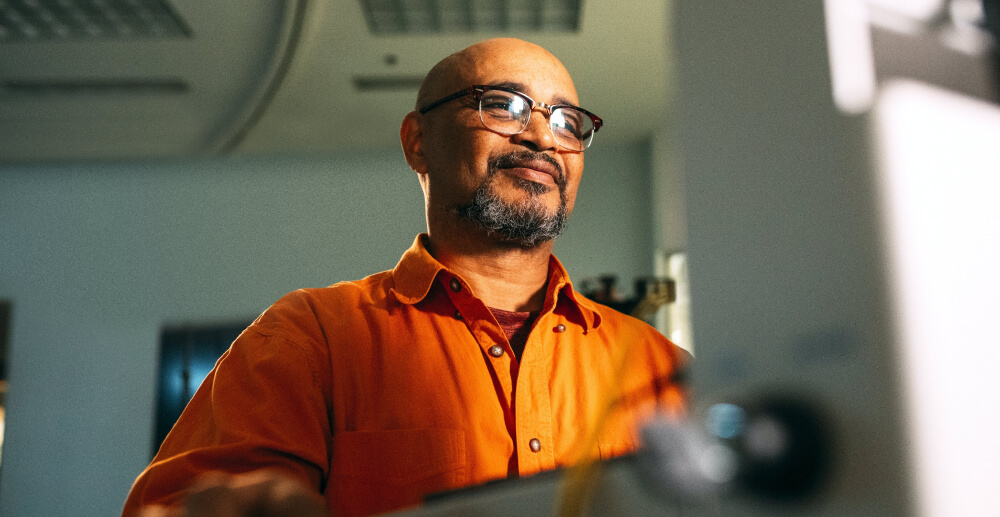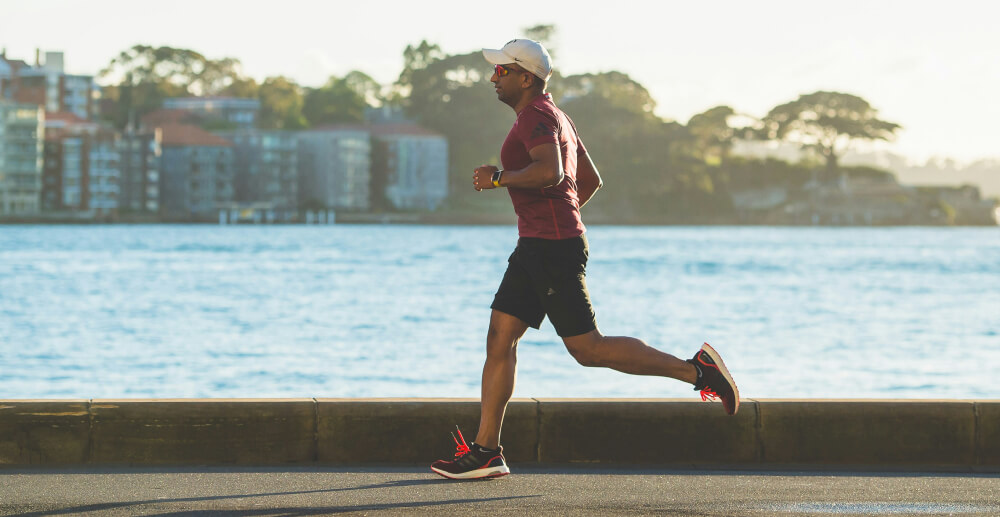Domestic violence is a significant issue in the United States.
According to the National Coalition Against Domestic Violence(NCADV), one in four women and one in nine men experience severe domestic violence, and one in three women and one in four men experience some form of violence in the home. In my last blog post for WorkIt Health, I discussed how the coronavirus pandemic exacerbated several factors that contribute to domestic violence. In this one, I will offer some resources to help those experiencing violence in the home.
Leaving Is Scary And Potentially Dangerous—But It Can Be Done
As a survivor of severe intimate partner violence, I know how difficult it is to get away from an abuser. People who love you and want to see you safe might tell you to “just leave,” not realizing how complex and even dangerous enacting that suggestion can be. It’s especially difficult during a pandemic when money is tight, shelters are not running at full capacity, and many people might be wary about opening their homes to outsiders. But that doesn’t mean it’s impossible, and it certainly doesn’t mean you should feel doomed to remain in an abusive situation forever.
Abusers are unpredictable; if you try to leave, it could be leaving with no phone, no wallet, no keys, no ID, and so on. If you rely on medication to live, he might keep that as a means to make you return quickly. Try to keep as many of these resources packed in a private place—abusers are controlling, so that private place might have to be outside of the home. If you’re able, memorize a couple of important phone numbers just in case you can’t access your documents. Some resources might be more difficult than others; it’s easy to jot the DV hotline and your best friend’s phone number onto a scrap of paper, but collecting cash, keeping an extra stash of meds, or acquiring copies of identification and travel documents requires a certain amount of privilege that many survivors lack. It might be a good choice to make a list of what you need to leave and categorize it into two parts: what’s truly essential versus what you can live without. Essential things will be what you just can’t leave without, whether that’s a particular set of items, a form of medicine, a set of documents, or a particular amount of cash. Do your best to gather these first.
This website, called The Pixel Project dot net, has a comprehensive list of suggestions to help successfully escape an abuser.
For Targets With Children
For people who have children, navigating and escaping abuse is even more difficult. This is compounded by many factors. For example, although your partner abuses you, he may not likewise abuse the children—he might even be good with them—and you feel guilty taking away their father. Or, he could be using your children to control your behavior, threatening to lie to the court and keep you apart if you try to leave. On top of this, some resources, unfortunately, double as mandated reporters—so if they hear there is violence or drug use in the home (even if you’re calling for help getting away), they might notify child protective services (CPS). This includes some local shelters and healthcare providers.
Local CPS agencies have different names. These include the Department of Children and Families (DCF), Department of Health Services (DHS), Administration for Children’s Services (ACS), and so on. When parental drug use is suspected, it typically falls under the umbrella of “neglect.” Targets of domestic violence are sometimes also charged with the “failure to protect” their child from witnessing their own abuse. These approaches fly completely in the face of everything we know about domestic violence and drug use/addiction. They absolutely should never be applied, and there are people working hard today to stop these agencies from being able to harm families in this way.
In the meantime, if you are a parent reaching out for help for domestic violence, hope is not lost. If you can, look up your local child maltreatment laws, and see if they include any kind of “failure to protect” actions in their descriptions of abuse or neglect. If you’re concerned, put together a child care book. This is also a good idea if you think your abuser might try to take you to court. This is a tactic used by some parent advocates to help parents avoid losing their children if they anticipate CPS involvement—though this blog post does not qualify as legal advice and if it’s always recommended that you speak with a licensed attorney for legal advice.
Include in the book anything relevant to the care of your child: health and immunization records, dental records, school reports showing attendance, your own negative drug tests, and treatment attendance if you are now or were previously engaged in addiction treatment, family photos, family drawings by your child, records of any extracurricular activities they enjoy, letters from friends and family. If they have a physical or mental health concern, make sure to include documents showcasing their appointments, diagnoses, and treatments.
If child services does look into your family—know your rights. You do not have to let them into your home or speak to them at all without a warrant/court order. You do not have to grant them access to your kids without a court order. You do not have to answer any questions you don’t wish to, and you don’t have to sign anything. You absolutely have the right to have an attorney present, though not all jurisdictions provide them. This can backfire, however, as CPS cases are often built on hearsay, and agencies can use your refusal to speak as an indicator of guilt. I have spoken with people who successfully evaded being investigated by simply refusing to speak with the agent until she gave up—but I and many other parents have also experienced the absurd horror of being labeled a bad mom simply because I refused a request at the beginning of the case. Facebook and other social media platforms offer several informal peer groups where you can speak with parents (and sometimes even attorneys) who have been through the system.
Domestic Violence Resources
For help escaping domestic violence, you can reach out to local resources. In the United States, dialing 211 can get you through to a list of local resources. They ask you several anonymous questions at the beginning of the call, typically before connecting you with a live representative, to help narrow down your specific needs and circumstances. Because of this, 211 recommendations are typically pretty tailored to your needs, but they’re not perfect. They can miss things. If you don’t find help through 211, ‘The Hotline’ is a national 24/7, government-run, domestic violence resource you can call from all 50 states, Puerto Rico, Guam, and the U.S. Virgin Islands. It can be accessed through the following numbers: 1−800−799−SAFE(7233) or TTY 1−800−787−3224 or (206) 518-9361 (Video Phone Only for Deaf Callers).
If you’re outside of the United States, The Pixel Project’s Twitter account repeatedly tweets international helpline numbers from every region of the globe.
Black, Indigenous, Latinx, and other people of color might feel uncomfortable calling a government hotline. This comprehensive pamphlet by The Women of Color Network, Inc discusses some of the unique cultural issues faced by people of color who are experiencing domestic violence and ends with culturally specific domestic violence resources in different parts of the country.
Since the rise of apps, several have come out claiming the ability to be can be discreetly downloaded onto any device and used without an abuser’s knowledge. While these are a great idea, in theory, they come with some risks in practice. That doesn’t mean they can’t be utilized to record information without your abuser’s knowledge, connect you to resources, or discreetly place an emergency call; it just means you have to know what you’re downloading and how to use it safely in your specific circumstances. This website goes over some of the safety risks posed by these apps and provides tips for safer use. It also includes recommendations for a few choice apps and a list of resources such as local national helplines.
If you are a drug user who falls on any part of the spectrum (from the occasional user to active addiction to abstinent recovery and everything in between), you might also be able to find resources and camaraderie from local drug user’s unions. Check online to see if there is one in your area. These are typically peer-led harm reduction organizations looking to support people who use drugs in achieving their goals, whether that means addiction recovery or safer drug use. They are often rooted in their local communities and connected to a host of resources, including those that can help you get out of an abusive relationship. They may even be able to get you some local, individualized help that’s never going to show up in a blog post or internet search.
A Better Life Is Possible, And Yes You DO Deserve It
As a survivor of intimate partner violence, I know how much abuse can warp your self-image, even making you believe you deserve it or that you are the abuser. But that’s not true. You are NEVER at fault for your abuse; that’s wholly the fault of the perpetrator, even if you yelled at him or smiled in the direction of the guy scanning your groceries. Reacting, retaliating, or defending yourself from abuse is also NOT ABUSE, even if it can look violent or crazy out of context. A sane reaction to an unacceptable reality isn’t going to look “normal.” Whether it’s a partner who belittles your accomplishments or uses you as a punching bag after work, abuse is never okay—and you deserve better. You can get away. It’s not easy, especially during a pandemic, but it is possible. You have survived this far. You can do this difficult thing, too.









